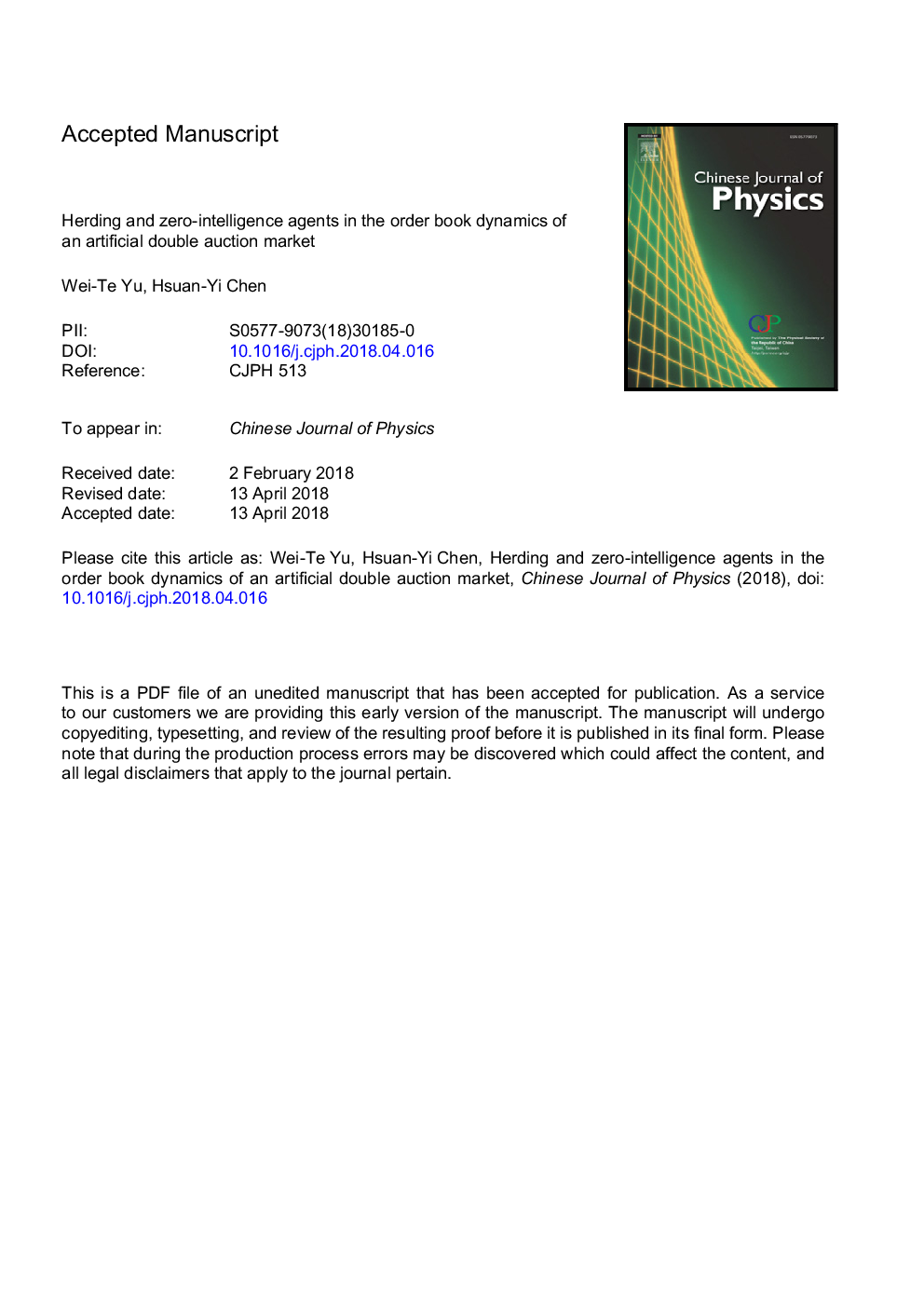| Article ID | Journal | Published Year | Pages | File Type |
|---|---|---|---|---|
| 8144772 | Chinese Journal of Physics | 2018 | 22 Pages |
Abstract
Effects of herding on the order book dynamics of a double auction market is studied by an agent-based model. This is done by comparing results from a zero-intelligence model and a model in which herding effect is implemented by aggregation of agents who take market orders into opinion groups. The number of opinion groups in a simulation step is determined from previous volatilities of the market as different agents compare the price change over different time intervals. Besides confirming that when herding is included the tail of the distribution of volatility is enhanced, we found several new results. First, the autocorrelation time of volatility is much shorter than the memory of most of the agents because limit orders have strong influence on the location of best bid and best ask. Second, from the relation between bid-ask imbalance and price return we find that herding reduces the chance for a small imbalance to produce a large price change. Furthermore, herding tends to decrease spread. This is because herding decreases the chance that a market order changes the size of the spread. Finally, we find that the relation between spread and volatility in our models does not agree with empirical data, this indicates a difference between agents with no strategies and agents in real financial markets.
Related Topics
Physical Sciences and Engineering
Physics and Astronomy
Atomic and Molecular Physics, and Optics
Authors
Wei-Te Yu, Hsuan-Yi Chen,
